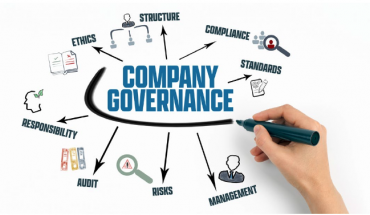Bidding for a better
opportunity and equality
A greater determination by women to break the traditional employment ‘glass ceiling’ is showing through strongly in Gibraltar, as groups form to consider what in practice can be done to ensure equal opportunity for females – and sometimes, also for men, as Ray Spencer finds out
Against a background of growing pressure for improved maternity pay, help with nursery provision and shared paternity leave, initiatives by government and amongst financial services firms and other businesses in the jurisdiction, generally lag behind those in the UK.
At October 2014 (the latest figures available) 42% of the 24,422 Gibraltar employed were women. The total of employed women grew that year by 3.8%, but there were 8.7% more working men.
Edward Macquisten, chief executive of Gibraltar Chamber of Commerce, observes: “One of the most interesting developments has been the significant increase in women in employment in the last 20 years.
“This has been for a whole variety of reasons: more women going to university and gaining professional qualifications and a greater number of white collar jobs available. Gibraltar has developed as a service-based economy. This has given more opportunities for women to do a wider range of jobs.”
Larger companies moving to Gibraltar often had more sophisticated employment needs, he says, not just recruiting for a job, but providing ongoing training and development.
But of the 2,761 people in the jurisdiction who had average annual full or part time earnings of more than £50,000, just 551 were female.
Emma Perez, chief executive officer of S G Hambros Bank (Gibraltar), describes herself as “one of the lucky few” not to have experienced sexism in her career, “but you do hear of people who have had problems, not getting roles because they were women. There is still a question on salary parity, depending on the organisation and its size, even in the financial services sector.”
As the only female head of banking locally since 2006, she sees more of her gender today in senior financial services sector roles. “There is still improvement to be made, and it’s still quite a male-oriented society,” she points out.
Samantha Barrass, chief executive of the Financial Services Commission (FSC), where its 72 staff are equally divided between the sexes, notes: “If I find an all-male Board – and there are quite a lot in Gibraltar – I’ll think you haven’t got a single woman; it’s really striking, but it doesn’t appear to strike a lot of other people.” It’s not a regulatory issue, but she says if the issue is raised, the response typically is that it has nothing to do with sexism, appointments being made on merit.
“I know this jurisdiction has a lot of very good women and more needs to be done to understand that when we as employers are looking to recruit, it’s quite natural to want to appoint people who are most like us, and there can be a natural drive that works against diversity in the workplace”, says the 52 year old mother of three, who has worked mostly in male-dominated financial services entities.
Preventing indirect bias
Yet the FSC’s top team of five has only one male, newest recruit Peter Taylor, Director of Legal, Enforcement and Policy. Barrass maintains that having worked in large organisations “with a considerable focus around equality and diversity and around understanding bias and how indirect bias can creep into all sorts of decisions, it’s quite a change for me to be in a jurisdiction where there is much less of a formal equality and diversity agenda running through. There should be”.
The FSC is to “review its HR policies through an equality and diversity lens that will extend beyond the role of women in the workplace”, Barrass promises.
As Marcus Killick, chief executive officer at ISOLAS law firm, affirms: “Whilst the reality is that all lawyers are employed on their merits rather than by gender, we have to be careful that we do not have accidental
discrimination, which restricts an individual’s progression, for example by not having an adequate maternity policy, opportunities for career gaps and flexibility on hours, all of which tend to disproportionately affect how women rise to the top in their legal careers – at ISOLAS we are moving on these aspects.”
He agrees that women “probably are under represented in Gibraltar law firms” saying: “At ISOLAS, whilst women make up over half of the total number of non-partner fee earners, only one of our eight partners is female. There are 17 other fee earners, eight of whom are female.”
Will Morgan has been house husband for 14 years since his wife Kathryn, a qualified actuary, gave birth to their daughter Liz, and in 2014, she became the FSC’s director of regulatory operations, previously having had a role at the Bank of England.
“My husband gave up work as a driver, because after discussion, he considered that it would be economically better for him to stay at home and be primary carer to our daughter,” 53 year old Morgan explains.
“In Gibraltar, when I go into a room – and often I am the only woman – I have had the impression it’s the men who go out to work and the women have responsibility for children. Most of the discussions I have had with women in the workplace, all relate to childcare. And I don’t agree; it’s not my sole responsibility.”
Her good friend in the UK, Jayne-Anne Gadhia, chief executive of Virgin Money, produced a report recently for Chancellor George Osborne, that found while more women than men start out in the City’s financial services sector, “as they progress, the majority fall out, especially at middle management level. This leaves almost all of the top jobs in the hands of men”.
The Empowering Productivity – Harnessing the talents of women in financial services report made recommendations about fairness, equality and inclusion for men and women, noting that “achieving a balanced workforce at all levels in financial services will undoubtedly improve culture, behaviour, outcomes, profitability and productivity”.
Childcare top topic
Morgan shared that report earlier this year with a few local female contacts, all in senior positions. “All the conversation went back to childcare – the availability – and flexible working”, she says. Now some 20 women have asked to take part in further discussions and having more meaningful data in Gibraltar has been identified as a necessity.
Gibraltar’s Minister for Equality, 39 year old Samantha Sacramento recognises the information shortfall, proclaiming: “We are looking statistically in government to see where the gaps are in the workplace – gender pay gaps and pay differentials – on a sector by sector basis, and at new ways to collect data, so that it is more obvious.
“At the moment the focus is on the gender pay gap… and about women in leadership, because they are in a minority when compared with men”, she maintains.
Sacramento enthuses: “We need to engage the private sector and hope to have tangible information by the Employment survey in 2018” and possibly, some details earlier.”
Deborah Kinlay has worked in recruitment for 20 years, almost half that time as a director for Quad Consultancy in Gibraltar. She reports: “The attitude towards women, particularly in the gaming sector where we specialise, is positive and most of our applicants are international from all over Europe – men and women – and it’s a case of whoever is best qualified gets the job.”
However, there are more male applicants, particularly at senior levels, because she believes, they come from an already male-dominated pool, or where women are having families. When those women return to work “they want part time or flexi working hours and our clients generally are very reluctant to offer that.
“I believe employers should offer more flexibility of working times, because it is becoming the norm the world over, and potentially women bring more skills into the workplace,” Kinlay notes.
Beta Service Recruitment was founded five years ago by 32 year old Kathleen Victory when her son was a year old. She previously worked for another recruitment firm, in company management and as a Royal Gibraltar Police Force constable (where she passed the Sergeants exam with the 2nd highest grade from six mostly male successful candidates).
No special treatment
She points out that “some smaller firms do offer flexibility of hours to help with childcare, because they don’t want to lose a good employee, but when [applicants] come from abroad, that’s the thing, they struggle, because they must put their children in a nursery, which can be quite costly, so they need to get a job that pays enough.”
However, Victory believes women should not expect special treatment and achieve their goals regardless of their sex by working hard. “You don’t ask for equality, it is already there if you prove you are worth it,” Victory declares.
Dr Liesl Mesilio Torres has three daughters aged 5 to 11 years, and was surprised after interest focused on her gender rather than as a chief scientist when three years ago she became the first female to fill in as acting chief secretary in the Civil Service.
The 38 year old Environment Department chief executive is adamant: “We should focus on a Network of Professionals and not have either gender single themselves out. Singling out women means you are almost being positively discriminating of the male sex”, she maintains.
Minister Sacramento, having worked in Cardiff for two years as a barrister and advisor on policy at what is now the Equality and Human Rights Commission, attended a Gibraltar law firm interview that “ended up with asking me if I had a boyfriend and I said ‘what does that matter’. And then I went off on one: I couldn’t see how it was relevant to the job… questions like that are a no-no in an interview”.
Raising awareness first
Sacramento, who is unmarried, sees the next generation as being key to changing attitudes towards women in employment. Her message to school 6th formers: “You need to work hard to achieve what you want and it’s about not letting anybody get in the way, because you are a woman – you don’t want family saying ‘you don’t want to do this or that’, because you are a woman.”
The Minister’s empowerment strategy hopes to raise awareness of people’s rights under the employment and equal opportunities laws. “The legislation is there, the protection is there, against discrimination on grounds of your gender; the only part of the legislation that protects a woman is [in respect of] maternity and specifically relates to entitlements,” she affirms.
Women statutorily receive £87.64 per week whilst on maternity leave for 14 weeks (plus a one off grant of £600) with up to 18 weeks leave, the balance of 29 weeks being unpaid, unless employers make up the difference: in the UK, it’s £139.58 for 39 weeks.
Female civil servants are entitled to six months maternity leave on full pay and another six months without pay, a practice that some private sector firms replicate.
Last year Desiree McHard, managing partner at BDO Gibraltar accountancy network, became the first female president of the Gibraltar Society of Accountants where more than a third of the 350 members are women.
BDO has introduced “more flexible working hours [for women] and in respect of maternity pay, basically top-up the statutory government minimum payment”, she states.
Married with three school age children McHard has achieved a work-life balance, but adds: “I suspect that there are others in the business community who may have found it more of a challenge. Assisted childcare and state-sponsored nurseries for the under 4’s would afford support as would private sector endeavours such as work place crèches; however both run on economies of scale and the latter are usually witnessed in countries with firms of significantly larger workforces than the local arena.”
Workplace crèche
No local firms are reportedly offering at-work childcare, although one accountancy practice is said to be considering training staff to look after employee’s young children so they can stay in post at a time when it has become
difficult to recruit staff.
Every February parents of children can apply for one of 366 free morning or afternoon placements for three year olds at government nurseries. Private nurseries cost £300-400+ per month, but Gibraltar’s close-knit residential community means that grandparents often become carers for children of working mums. For those arriving to work in Gibraltar from elsewhere, no such support is available.
“I believe everyone should be able to choose, if they wish to work part time,” says 34 years old Gemma Vazquez, Gibraltar Federation of Small Businesses (GFSB) chairperson, and one of seven female partners out of 40 at Hassans.
Although GFSB Board has not discussed maternity leave, she concedes: “I fully realise the constraints and difficulties that it causes for employers, particularly for a small shop or firm. It’s very difficult to have someone on maternity leave for 6 months to a year, particularly after money has been spent training that individual.”
Determined mothers
Amanda Eccleston is RBS International (RBSI) Director of Conduct and Regulatory Affairs in Gibraltar, responsible for bank-wide compliance and risk management at NatWest, having joined RBSI 28 years ago. A mother of three teenagers, she is a passionate
advocate of achieving a work – life balance and believes her employer’s approach to flexible working has helped her with family and career.
After having a full year off for each of her first two children and returning to work more quickly after her third child, Eccleston reflects: “I am an ambitious person, so was keen when offered promotions to progress my career.”
For determined mothers like Amanda, RBSI support enabled her and colleagues to succeed while fitting around a busy life outside work. RBSI has “a big push at the moment in terms of placing more senior women” to increase the 32% in its top three layers to reach a 50% gender split through support in leadership development and offering working flexibility. Currently, 84% of the 117-strong local workforce is female, but Eccleston says gender is not considered an issue for employment.
Paternity time lagging
One factor – equal opportunity for men to have paternity leave – is considered by all women to be desirable. At present, males can have two weeks leave and one is paid, but no right to shared leave.
Heidi Bocarisa, the FSC’s director of strategy & planning, joined aged 23 some 18 years ago when “the bulk of women were in administrative or secretarial roles.” The mother of three young girls, Bocarisa says: “Women go off on maternity leave, but most fathers are involved in family life as well.
“I think Gibraltar is fairly behind the times when it comes to that approach, in terms of flexible hours, working from home, friendly hours, even things like paternity leave arrangements.”
Thirty years old Hannah Strain, FSC Head of Operations, is on maternity leave with her five month old daughter, Elise, and believes that “until [shared parental leave] happens women are always going to be at a disadvantage at work, because they are the ones who have to take time off, and there is this mentality, ‘well women can always go back after having children’. If the man had the same opportunity, it might be different.”
Young are more knowing
The younger generation, “believe in their qualities and have grown up in a society where there is more equality even in their own relationships”, perceives Tonia Brooks, chairwoman of the 30 year old Women in Business Gibraltar networking group. “The Internet and communications generally have created a better awareness of the world and of the potential”, she says.
A passionate advocate of women in business, Brooks retired two years ago as Gibraltar’s first female principal of the Further Education College. “I know women who are constantly trying to prove themselves – that they are worthy in their post – and that they work harder than men; they feel they cannot let their guard down – and that shouldn’t be the case,” she asserts.
The Gadhia report found younger people, especially women, do not want positive discrimination. However, as women get older views alter. “They realise that if they want to see meaningful change in gender equality, businesses need to measure it; because what gets measured gets done”, emphasises Gadhia.
As Vazquez notes: “What has to change is understanding – there has to be better understanding of the position on both sides. [Only] women will have children – that has to be the case – and they cannot be prejudiced in their workplace for doing so. But at the same time, we have to understand the costs (and not just financial costs) which maternity leave brings to small employers in particular.”
But other aspects of increased maternity benefits and shared paternity leave are not early candidates for action, with Sacramento admitting: “Those are discussions I have to have. They are not in the [government’s] Manifesto, which means it obviously is not a priority over other things. There is nothing certainly that will take place soon.”





